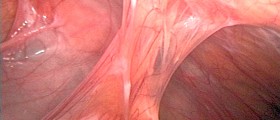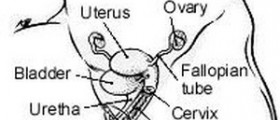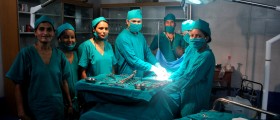
First, a quick run-down of the symptoms of Asherman's Syndrome. As the name suggests, this condition was discovered by a Dr Asherman, after he found out that some women stop having periods after undergoing surgery while pregnant. An abortion, or a curette after a miscarriage, are some of the causes. Other surgical procedures involving the uterus, or a manual removal of the placenta after birth can also cause Asherman's. The main symptom that indicates Asherman's Syndrome is a reduction in the number of periods a woman has, and in the blood volume. Those with reduced blood flow might experience extremely painful periods, which are an indication of the body doing its best to rid itself of scar tissue. In the worst cases of Asherman's, menstrual periods completely cease.
Asherman's Syndrome can be treated surgically by locating and then removing the scar tissue present in the uterus. More than one surgery may be needed, and Asherman's Syndrome does come back sometimes. Some women might be able to get pregnant with Asherman's Syndrome, but the scar tissue and adhesions could pose a risk to the fetus and its development. Talking to your doctor before trying to conceive is the best approach. Doctors recommend that you wait for at least a full year after confirmation that your uterus is clean and healthy to try to get pregnant if you have undergone surgery.
- medlineplus.gov/ency/article/001483.htm
- www.nhs.uk/conditions/hysteroscopy/
- Photo courtesy of Elizabeth Ann Colette by Flickr: www.flickr.com/photos/fromcolettewithlove/480837166/

















Your thoughts on this
Loading...